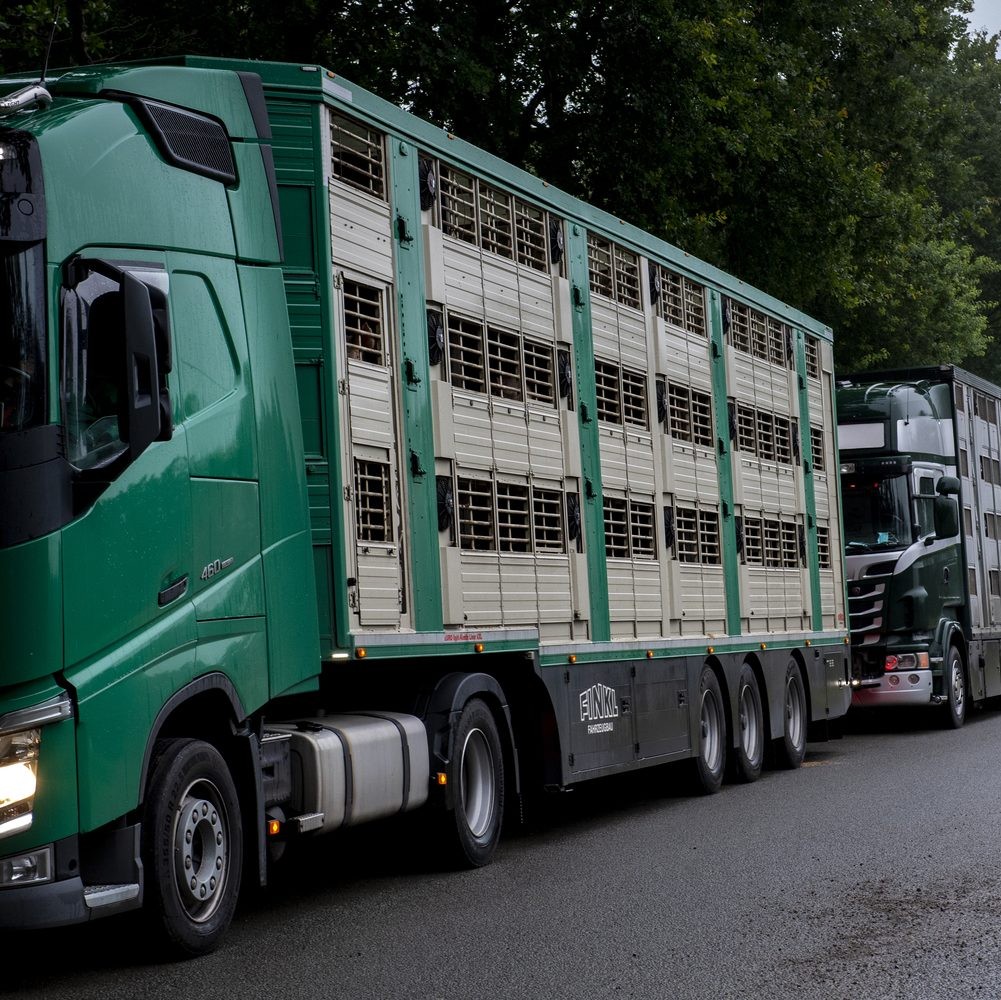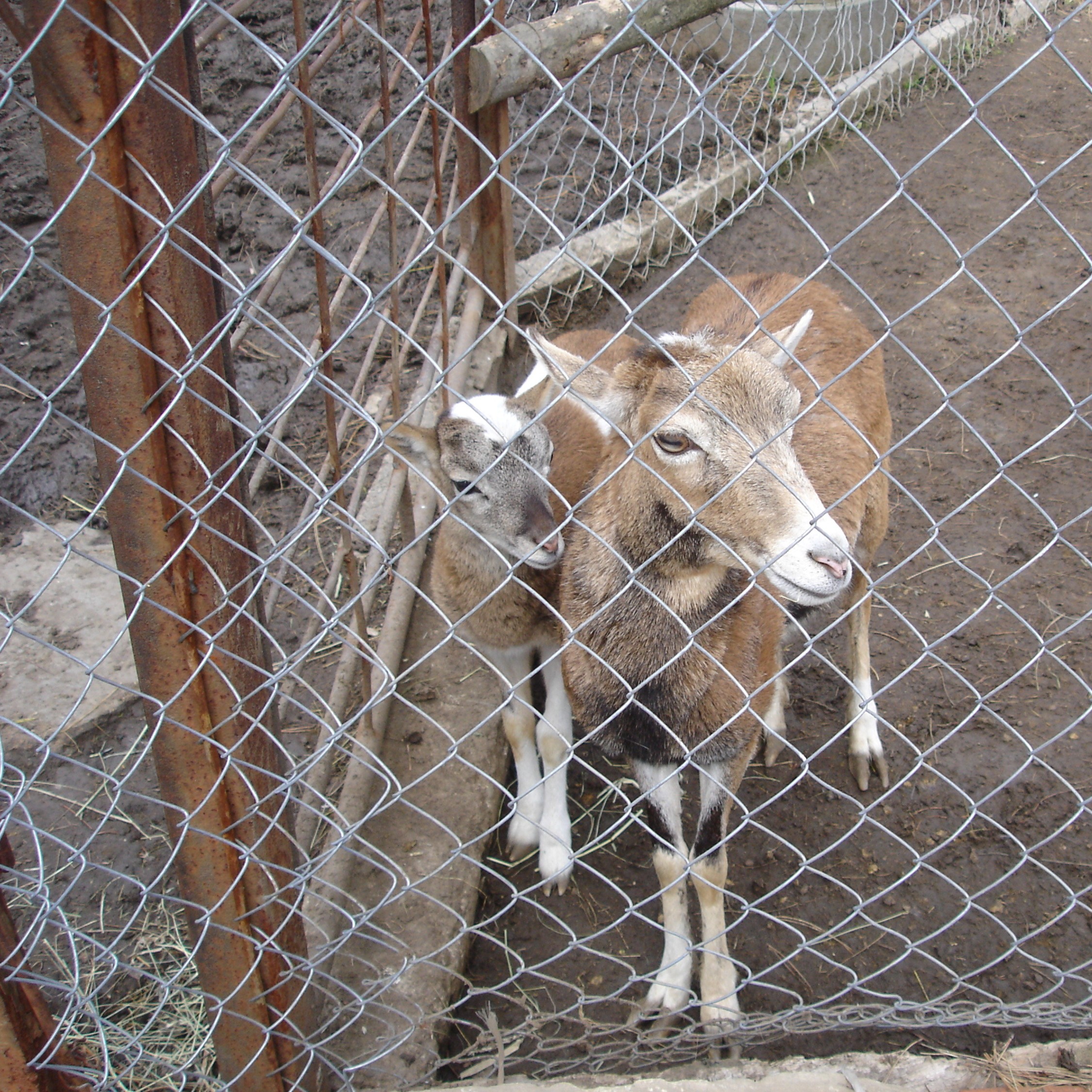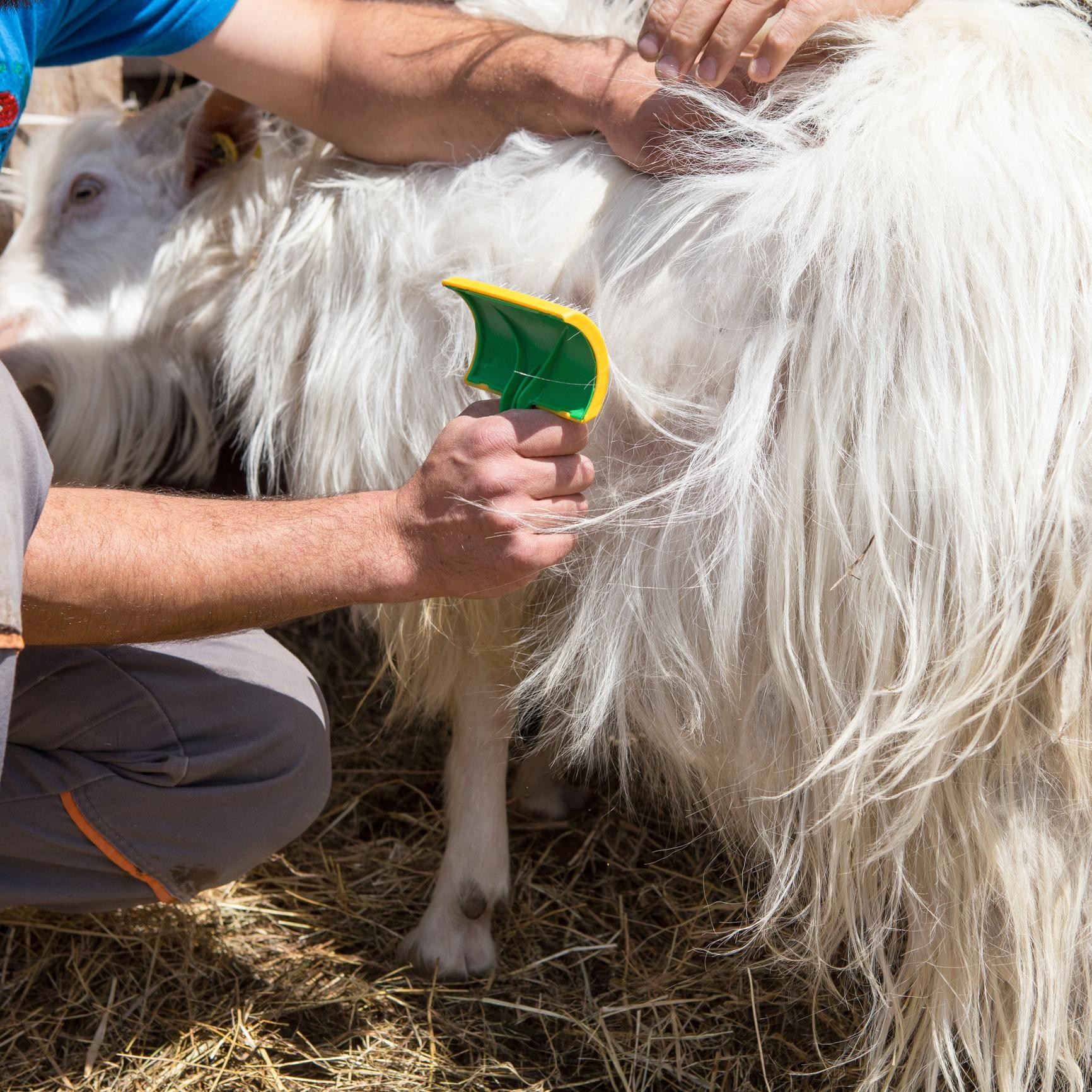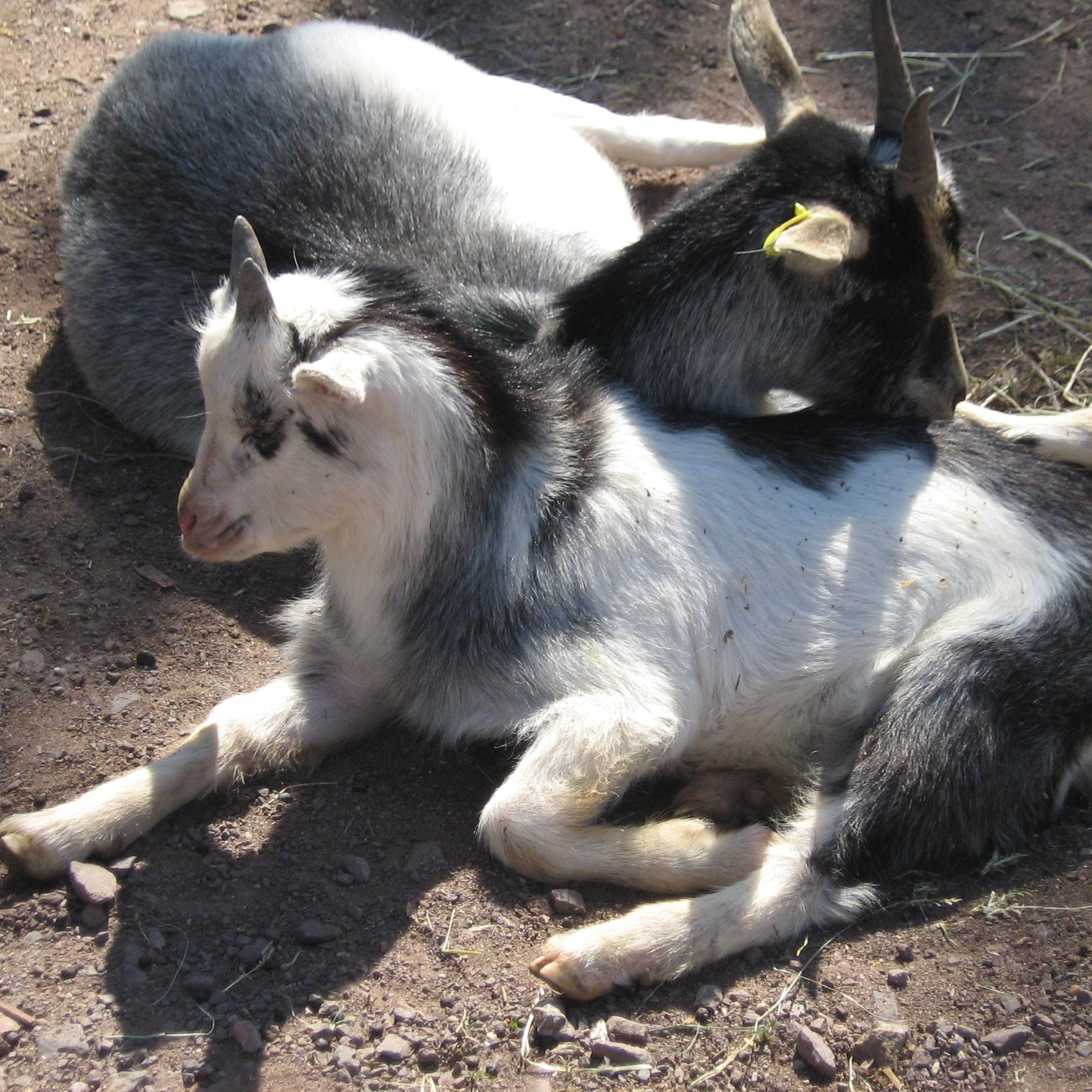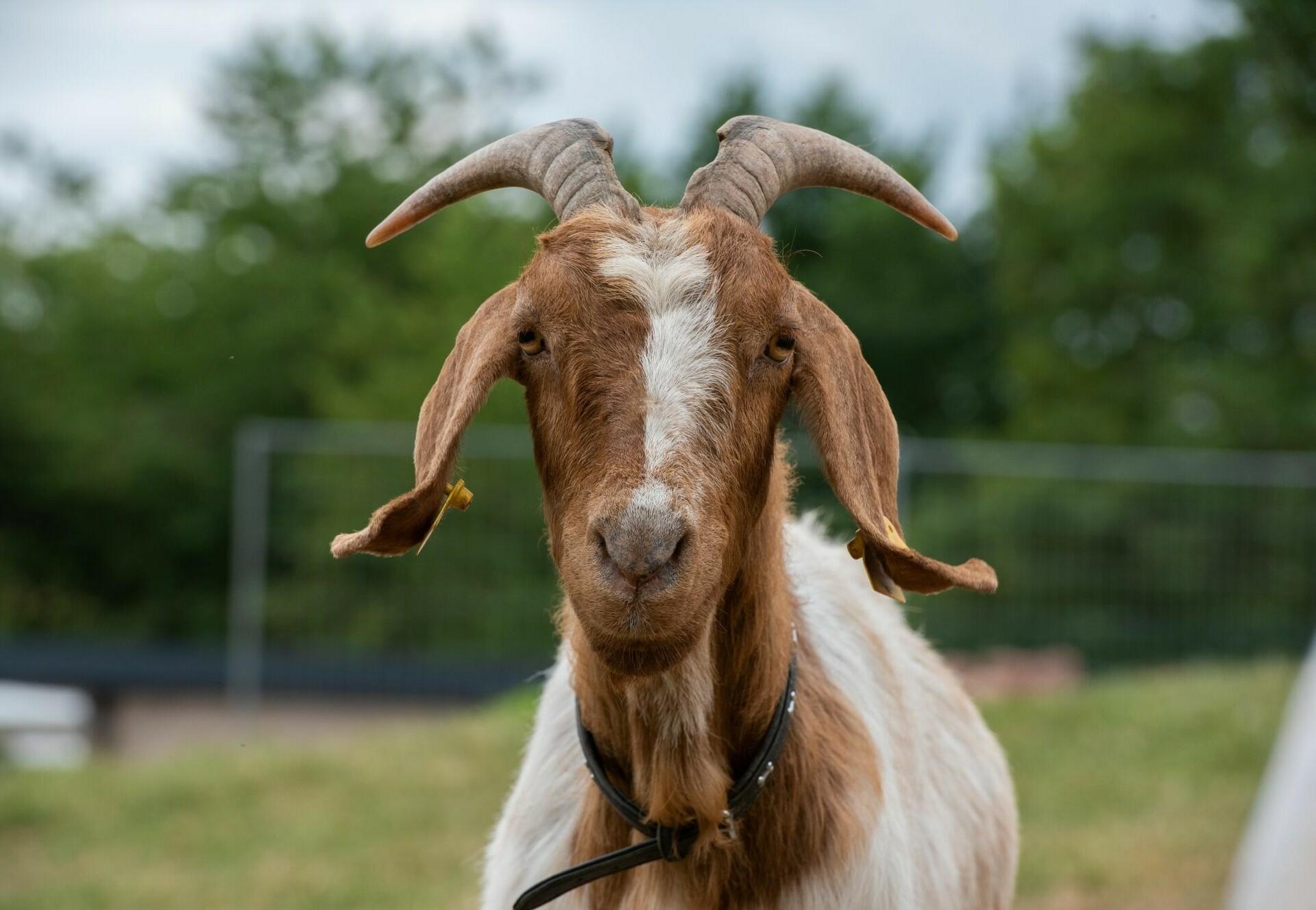
the mutilation of goats
Goats are adapted to the farm environment, instead of vice versa
Goats have to suffer harmful procedures on farms with intensive purposes. The demonstration mentions common cruel practices.
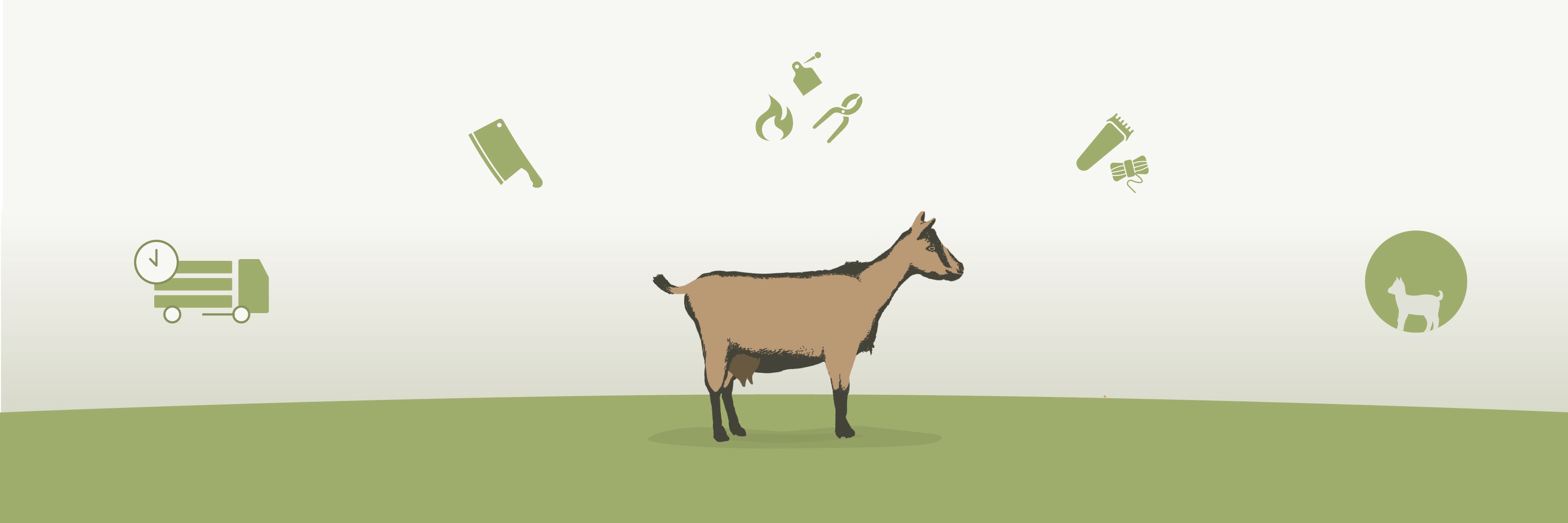
Live Animal Transport
Slaughter
Mutilations
Bad Handling on Wools Goats
Separation of Kids from their Mothers (Dairy Goats)
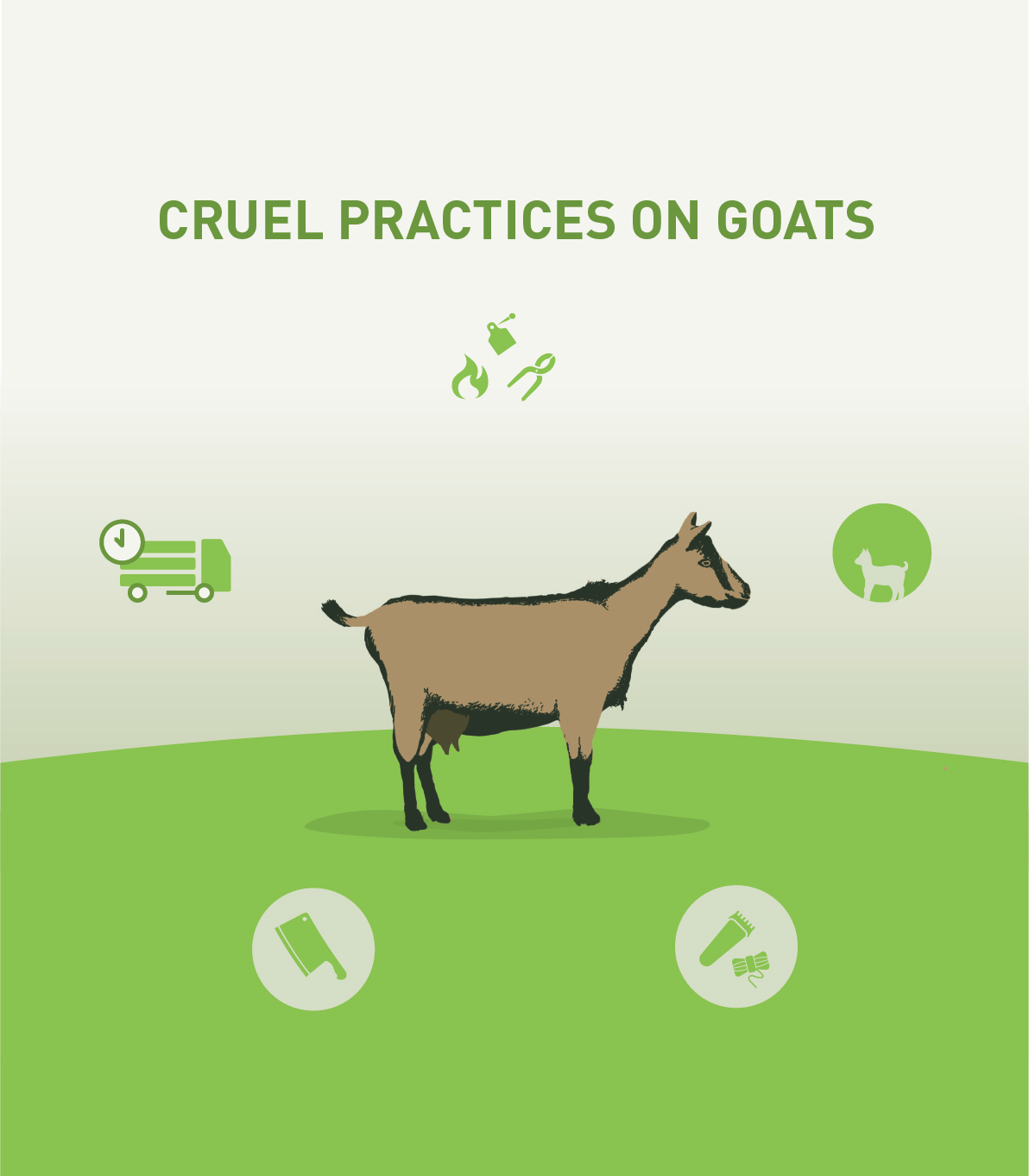
1
2
3
4
5
dehorning
- Purpose: to prevent animals injuring each other or staff in a restricted space.
- The horn buds are burnt out. Because the horn buds are rich in nerves, dehorning is very painful.
the castration of male animals without anaesthesia
- Purpose: to prevent the 'goaty' odour of the meat of males, and to curb their fertility. The animals become less aggressive.
- The spermatic cords are strongly squeezed by a clamp (the Burdizzo clamp).
- There are also other castration methods (e.g. surgical, with a scalpel).
four paws demands
- A ban on the dehorning of goats. The horn buds of goats are extremely sensitive. Appropriate farming methods do not require the amputation of body parts.
- The castration of male goats must be carried out by a vet, under anaesthesia and with follow-up treatment against pain.

